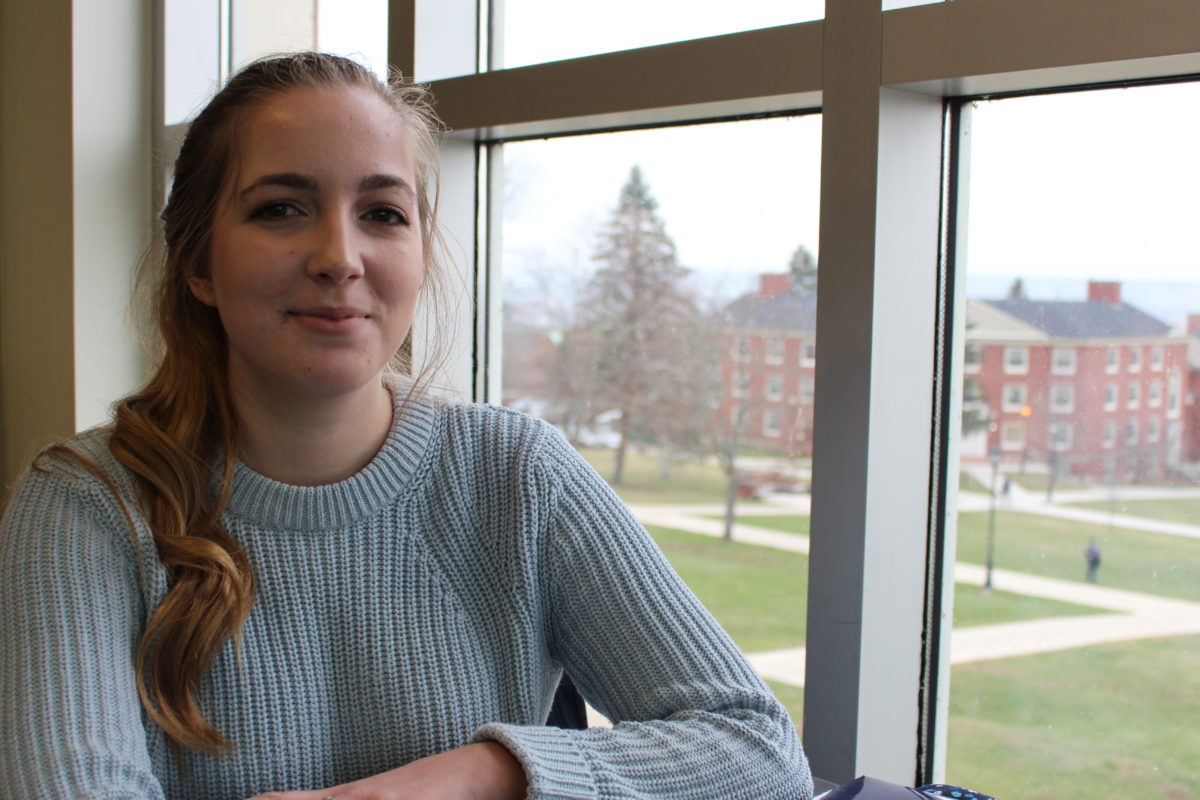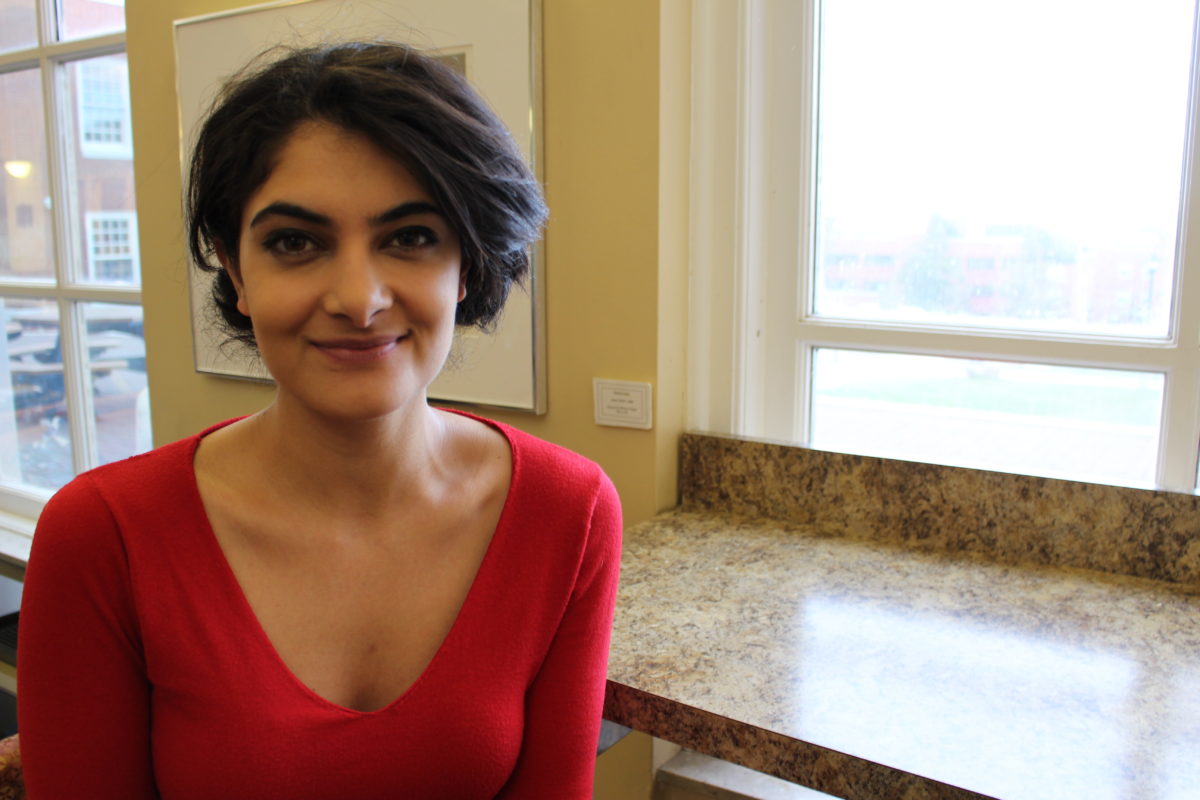Nothing is more discouraging than hearing a parent or a close friend disagree with what you want to do with the rest of your life, as if it’s their decision to make. No one seems to disagree with the idea of a student furthering their education with post-secondary schooling, but when it comes to what a student would like to pursue, everyone and their dog has an opinion.
After being encouraged by the people around her to pursue an education in engineering, fourth-year University of New Brunswick student Marissa Boone decided to give it a shot. Now studying French in the faculty of arts at UNB, she is happy to have found her place and is grateful for her experience with engineering, although it wasn’t for her.
“A lot of people were really impressed,” Boone said. “They thought [engineering] was a great idea and told me that I would probably do really well, but I definitely felt like I wasn’t being fulfilled.”
When Boone was in high school, she had a teacher who encouraged her to pursue engineering at UNB because she excelled in her math and science courses, but she didn’t really know what engineering was.
“I knew that a lot of people considered it to be the hardest degree, so I figured I should start there and if it didn’t work, that would be O.K.”
Boone realized engineering wasn’t for her when she participated in a pre-engineering camp at UNB.
“Even then it was overwhelming, so I tried to ignore it because I wanted to impress people and I really didn’t want to give up,” she said.
However, after taking a few French courses Boone decided a French major would create more job prospects for her, especially in New Brunswick.

“Before when my friends in engineering told me what they wanted to do with their degree I always thought, ‘That sounds awful and I don’t want to do that.’”
Boone is now majoring in French and minoring in math and business, but at first she was worried her parents were going to be disappointed she switched out of engineering.
“I felt like I was letting them down, especially my dad because he was really excited about me being in engineering. But as time has gone on they’ve kind of accepted it more, especially since I’m doing really well and they can see that I really enjoy it.”
This is common for many students considering an arts education, since parents encourage them to study science, as “it is easier to get a job afterward,” but students typically find the path that best suits them.
“There’s just been this big idea that [science, technology, engineering, and math studies] are where all the jobs are,” said Kiana Mozaffari, another UNB student who was unsure of her education path, but her family, professors and peers pushed her to pursue science instead of arts.
“When I told my parents that I might just do arts, they were like, ‘No,’” she said.
“[Science was] where I was heading all of high school, so it would’ve looked weird to just abandon my science background. But I also didn’t get why they were like, ‘This is the end of your employment [if you do arts].’”
To please everyone around her and herself, Mozaffari decided to obtain a degree in both science and arts at UNB, a concurrent program that would take five years of intense course work to complete.
After three years of intensive school work in both science and arts, Mozaffari decided she needed to choose one degree, as the work was becoming too difficult to keep up with.
“When I dropped one, I picked science because it made more sense. Everyone told me, ‘If you were to work, [science] would be easier [to get a job],’” she said.

Mozaffari is currently in her fifth year and is working on completing a bachelor of science degree, majoring in medicinal chemistry and minoring in international development studies.
Although she has continued with a science degree, she doesn’t believe having an arts degree makes you any less employable.
“You can make yourself more employable and better at whatever you study. I think I did an okay job with science and making it work for me, but I do wish that I did a little more in arts.”
Mozaffari is also a peer-mentor for students who are just beginning their post-secondary career and she sees the process young students go through to choose a major.
“A lot of the students [say], ‘I actually wanted to study arts but my parents told me I should do sciences,’ and some of them do end up staying and liking it, but a lot of them switch out,” she said.
“I think as long as you’re at least interested in something, then it doesn’t matter what you do, especially as an undergrad.”
Jodee Fearn, a second-year philosophy and criminology major at St. Thomas University, ignored the people around her who doubted her choice in education.
“Every time I try to explain something I’ve learned to [someone], they reply with ‘Why is that important,’ instead of, ‘That’s really cool, I’m [glad] you’re studying something you’re interested in,’” she said.
She was originally planning on only majoring in criminology, but her family was even hesitant with that choice.
“[They would ask] me what I could do with that degree and they asked the question, ‘What are you going to do afterward?’”
One of her friends, who is majoring in business at UNB is never asked the same questions. Fearn explained in business, students are expected to get a job easily, but with arts degrees people can be less supportive.
Despite those comments, Fearn has never swayed from her decision to study philosophy.
“The only regret I have is not learning about philosophy sooner,” she said.
Boone, Mozaffari, and Fearn all believe it is up to students to choose their education and career path, whether they know what they’re doing or not.
“Do something at least,” Boone said. “If you don’t think you’ll end up there, it’ll let you experience different aspects of life and maybe find what you do want to do.”
“I would tell [new students] to not listen to what other people say,” said Fearn. “It only matters what you think.”

